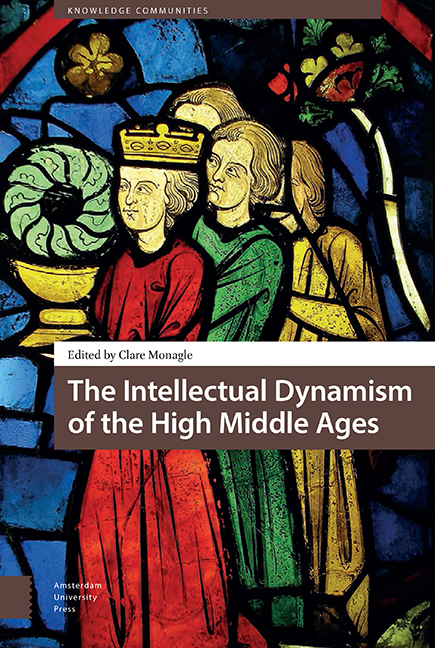Book contents
Epilogue
Published online by Cambridge University Press: 16 July 2022
Summary
Abstract
The epilogue offers an account of Constant J. Mews’ contribution to Monash University, as a teacher, researcher and colleague.
Keywords: Monash University, Constant J. Mews
‘All learning takes place within some kind of community’. This observation was the organizing principle around a conference planned by Constant Mews in 2010, itself a wonderful example of a community of learning. The conference's contributions were edited into a book by him and his friend and colleague, John Crossley, under the title Communities of Learning: Networks and the Shaping of Intellectual Identity in Europe, 1100-1500. The core insight was the idea that a communal network, whether it be a formal place of instruction, religious community, or an informal network of two or three friends, was a crucial framework for consideration when seeking to understand how ideas are developed and exchanged. Such communities are generally attached to a discipline of learning or to a particular set of texts, and those who participated often come to share a particular identity. But this does not mean that there is a homogenous view or unanimity of opinion in any specific community. At their heart are discussion, debate, continuing development, refinement, and, indeed almost inevitably, revision of current ideas. The way in which Constant Mews approached the idea of communities of learning can bookend this wonderful collection of essays in his honour: Constant thrives in contexts of the sociable, communal exchange of ideas.
The studies to which this epilogue is appended gesture to the many communities of learning that have flourished under the inspiration of Constant Mews. The tributes of the authors stand as a testimony to his role in developing and disseminating a seemingly endless array of ideas and projects. The names attached to the essays in this volume only hint at the number, richness, and eclecticism of the networks that he has engendered. As Clare Monagle wrote, when she invited me to write a coda to this volume: ‘Just like Constant himself, the contributions in his honor are an eclectic bunch’. Ideas of all kinds arouse his curiosity. Almost a leitmotif in any conversation about a person's research or intended project is his rejoinder: ‘I am very interested in that!’ New ideas excite him, and with his capacious knowledge, he is instantly alert to many marvellous potential connections between what is known and what is proposed.
- Type
- Chapter
- Information
- The Intellectual Dynamism of the High Middle Ages , pp. 337 - 342Publisher: Amsterdam University PressPrint publication year: 2021



